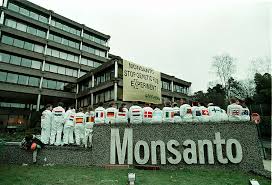
-
By:
- David Kedode
- 1 Comment
- Tags: Bill Gates, Farmers, GMO, Kenya, Monsato, Seeds
Seeds of Dependence: How Kenya’s Seed Laws Threaten Farmers and Food Security
Introduction
In Kenya, a draconian law has cast a dark shadow over the agricultural landscape, one that threatens the livelihoods of small-scale farmers and the food security of the entire nation. The Seed and Plant Varieties Act has effectively handed over the reins of agricultural production to multinational seed-producing giants, leaving farmers at their mercy. This legislation, aimed at regulating seeds and plant varieties, has unintended consequences that have far-reaching implications for both the agricultural sector and the nation’s food supply.

The Chains of Dependence
Under the Seed and Plant Varieties Act, farmers face dire consequences if they are caught exchanging, sharing, or selling uncertified and unregistered seeds. The penalty is a staggering two-year prison term, a harsh sentence that has sent shockwaves through rural communities dependent on traditional farming practices. The act essentially compels farmers to rely solely on seeds from multinational seed-producing companies, effectively making them slaves to corporate interests.
One of the most detrimental aspects of this legislation is that it prevents farmers from saving and replanting seeds from their own harvests, a practice that has been the backbone of agriculture for generations. Instead, farmers are forced to purchase certified seeds year after year, incurring increasing costs that threaten their economic stability.
The Consequences for Farmers
Financial Strain: The mandatory purchase of certified seeds places a heavy financial burden on small-scale farmers, who often struggle to afford them. This leads to a cycle of debt and dependency on seed companies.
Loss of Genetic Diversity: Relying on a limited range of certified seeds reduces genetic diversity in crops. This vulnerability can make crops more susceptible to pests, diseases, and environmental changes, putting food security at risk.
Food Shortages: The inability of farmers to save seeds for the next planting season means that they are at the mercy of seed companies. Any disruptions in the supply chain, such as price increases or seed shortages, can lead to food shortages.
Loss of Traditional Knowledge: This law discourages traditional farming practices and the sharing of indigenous knowledge among farmers, eroding the rich agricultural heritage of Kenya.
Global Implications
Kenya is not alone in implementing such restrictive seed laws. Several other countries have similar legislation in place, often under pressure from multinational corporations. In India, for example, the introduction of genetically modified crops and strict seed laws has led to farmer suicides and increased dependence on expensive, patented seeds. The plight of Indian farmers should serve as a stark warning to Kenya.
Recommendations
Repeal and Reform: The Kenyan government should reconsider the Seed and Plant Varieties Act and work towards a more farmer-friendly policy that promotes seed saving and protects traditional agricultural practices.
Support Local Seed Banks: Encourage the establishment of local seed banks to preserve and exchange indigenous seeds, safeguarding genetic diversity and traditional knowledge.
Invest in Research and Development: Allocate resources to support research and development of locally adapted crop varieties that are resilient to environmental challenges.
Promote Farmer Cooperatives: Empower farmers to organize into cooperatives, allowing them to collectively negotiate seed purchases and share knowledge and resources.
Conclusion
Kenya’s Seed and Plant Varieties Act has inadvertently placed the nation’s farmers in chains of dependence on multinational seed-producing companies. The consequences are dire, with the potential for increased food shortages and the erosion of traditional agricultural practices. It is imperative that Kenya and other nations with similar laws reevaluate their policies to protect the interests of small-scale farmers and ensure the long-term food security of their populations. The path forward must prioritize sustainability, genetic diversity, and the empowerment of farmers rather than corporate interests.

1 Comment found